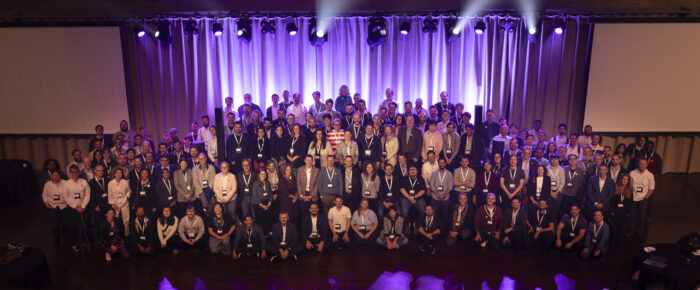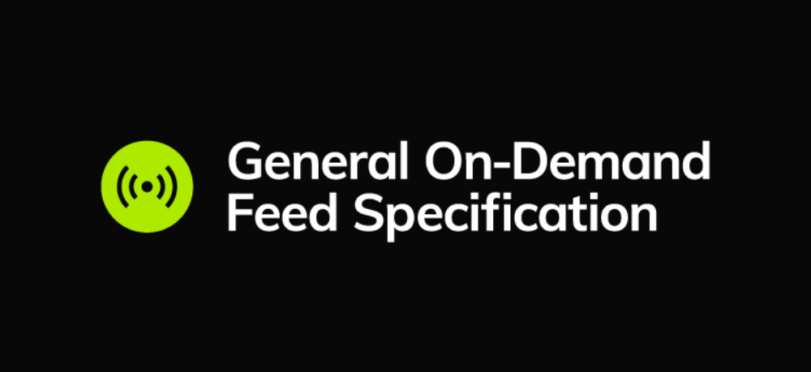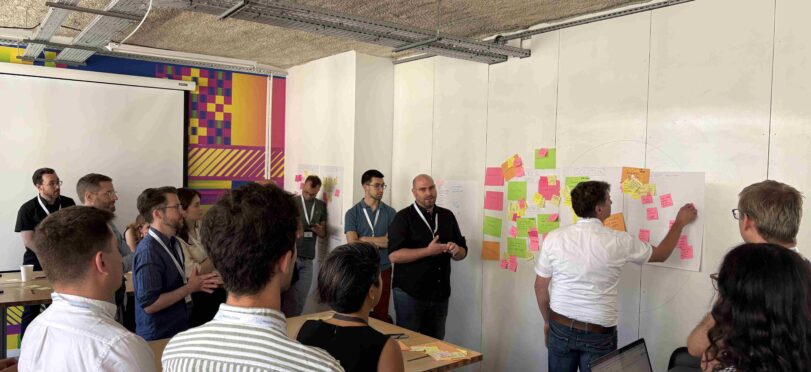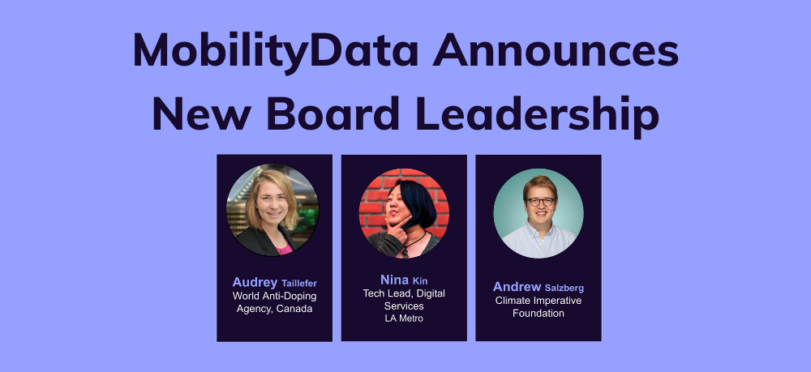5 Key Takeaways from the 2024 International Mobility Data Summit
Introduction
The 2024 International Mobility Data Summit, hosted in Montréal, brought together a truly global community, with 190 attendees representing 100 organizations from 18 countries on 4 continents. This remarkable response underscores the global importance of data-driven mobility solutions!

For two dynamic days, attendees engaged in insightful panels, such as “Challenges & Lessons Learned from Managing Transit Data for Big Cities,” participated in hands-on workshops on topics like transitioning to GBFS v3.0, and networked with leading mobility experts from around the world.
During the panel Empowering Global Access: Promoting and Assessing Open Transport Data, Rik Opstelten from the US Federal Transit Administration captured the spirit of the event, saying, “I think we all in this room have the same goal: to provide services in a way that make our society more sustainable.”
For those unable to attend, we’re excited to share the five key takeaways from the event. While nothing compares to being there, we hope these insights capture the impact of the Summit and offer a glimpse of what’s ahead for MobilityData and our mission to advance global mobility standards.
1. The World is Watching Mobility Data Standards
This unique international gathering underscored the global relevance of mobility data standards, attracting transit and mobility leaders from around the world to share insights, learn, and collaborate on the issues that matter most to transit systems everywhere.
A standout session was the Challenges & Lessons Learned from Managing Transit Data for Big Cities panel, featuring representatives from Boston, Cairo, Budapest, London, Barcelona, and Tokyo. Attendees were captivated by stories of how these cities are tackling unique data challenges and finding innovative solutions for better transit management. Following this session, Kyle Rouhani from Spare said “The session we just had was really fantastic, hearing perspectives from big cities across the world on the different ways they are using GTFS and what it means for their agency’s operations and their end users. It’s just really exciting to hear how much of a difference this is making.”

Adding to the collaborative spirit, the Community Pitch session invited attendees to present a quick 2-minute snapshot of their projects, creating a dynamic space for idea exchange and fruitful conversations. Day one wrapped up with remarks from Government delegates about how MobilityData strengthens the sustainable mobility ecosystem locally in Montréal and globally (be sure to check out our press release), and a Networking Happy Hour! Attendees connected on a personal level, exchanging insights and building the relationships that will continue to strengthen post-Summit.
We’re immensely grateful to everyone who traveled from near and far to join us. With such a diverse and passionate group, the work done here will springboard lasting impact, reaching cities and transit networks across the globe.
2. Data-Driven Mobility Solutions are Here to Stay
Throughout the Summit, one message was clear: transit data is essential to overcoming challenges in today’s transportation landscape, from accessibility and interoperability to privacy and beyond. The panels, workshops, and interactive discussions highlighted how these complex issues demand scalable, data-centric solutions that can adapt to rapid urbanization and evolving transit needs.
And the momentum is undeniable. With 190 leaders, innovators, and practitioners gathered solely to explore mobility through the lens of data, the energy in the room was a testament to the industry’s commitment to building a more efficient, connected future. Attendees had the chance to see groundbreaking use cases in action, proving that data isn’t just theoretical, it’s the backbone of real, impactful change happening now. As cities and transit agencies embrace these tools, data is poised to become a core pillar of success in mobility, shaping everything from how cities manage transit networks to how riders experience their daily commutes.
This summit underscored that data-driven solutions are more than just a trend, they’re the way forward.
3. Collaboration is the Catalyst for Progress
If you’ve ever participated in developing GTFS or GBFS with us, you know how essential teamwork is to the process. The Summit made it even more evident: collaboration is at the heart of progress in mobility data. This unique cross-section of global stakeholders showed that the challenges faced by one organization are often shared across the industry, creating opportunities to learn from each other’s successes and solutions.
At the Summit, experts shared firsthand experiences tackling diverse issues, from successfully implementing GBFS v3.0 and enhancing real-time data quality to promoting open transport data and developing assessment tools. These sessions weren’t just about sharing knowledge; they were about building a community dedicated to overcoming shared challenges through practical, innovative approaches.

Whether it was discussing solutions to common obstacles or finding new ways to work together, the conversations at the Summit promise to fuel impactful changes across the sector. The spirit of collaboration we saw this year will drive tangible results, benefiting organizations and communities worldwide.
4. The Future of Transportation is Powered by Open Standards
For public transit and shared mobility to become the favored solution for more people, it’s essential to meet riders’ needs, wherever they are in the world. Open data standards make this possible by creating a common language for transit and mobility data, enabling seamless integration across platforms and regions.
At the Summit, we saw how open standards like GTFS and GBFS are already transforming transportation, breaking down barriers between cities and mobility providers. These standards empower agencies, developers, and private companies to collaborate on innovative solutions, creating consistent, accessible transit experiences for everyone, from daily commuters to first-time riders.
By prioritizing open standards, the mobility industry can build a more connected, inclusive future where transportation adapts to the needs of diverse communities, paving the way for smarter and more efficient multi-modal friendly cities.
5. MobilityData Membership Fuels the Future of Mobility Standards
The 2024 International Mobility Data Summit wouldn’t exist without MobilityData’s Membership investments. Our Members make it possible to host these gatherings where industry leaders collaborate, share solutions, and set the course for the future of transportation. By supporting MobilityData, Members ensure that data standards evolve to meet real-world needs, making transit and mobility more accessible, efficient, and reliable across the globe. Additionally, by joining our organization, you’re funding the development of good governance for open source management which is critical to adjust and scale these standards.
Throughout the Summit, we saw our Members’ influence in action. For example, the Institute for Transportation and Development Policy (ITDP) has developed the Atlas of Sustainable City Transport which draws information from our own Mobility Database. The Atlas is an online dashboard featuring measurements of nine essential sustainable mobility indicators across over 1,000 metropolitan areas and 40,000 legal jurisdictions and districts. These indicators reflect how infrastructure impacts people and will be particularly valuable for evaluating access to sustainable mobility in low- and middle-income countries.

From defining open standards like GTFS and GBFS to tackling today’s most pressing transit challenges, Members play a pivotal role. Membership provides Member organizations with voting rights that influence MobilityData’s strategic direction. It also supports our work in good governance, underwrites the development and maintenance of standards, and powers the data-centric tools our industry relies on.
Organizations like ITDP, Ito World, Full Path and more, shared how, alongside MobilityData, they’re making a lasting impact in cities worldwide. Member organizations not only support the critical work that makes events like this possible, they also become key contributors in building a connected, data-driven transit ecosystem that spans continents and serves communities of every size.
In short, MobilityData membership is essential for those who want to drive meaningful progress in the industry. Check out our membership page to learn more about becoming a MobilityData Member!
Conclusion
The 2024 International Mobility Data Summit reaffirmed the critical role that data plays in sustainable transportation worldwide. From fostering global conversations to showcasing collaborative, data-driven solutions, the Summit underscored that the future of mobility depends on our commitment to innovation and inclusivity.
Thanks to MobilityData’s dedicated Members and community of contributors, we’re making strides toward a transit ecosystem that is more connected, adaptable, and accessible. The support fuels the standards, tools, and resources that shape our industry and drive us closer towards our goal of better transportation through data.
As we look ahead, each Summit, each conversation, and each new partnership brings us closer to a world where transit data connects us all. We’re excited to continue this work together as we build a smarter, more sustainable future for transportation!




